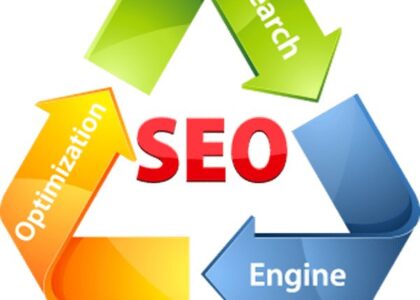Digital marketing is a broad field that encompasses various online strategies and tactics aimed at promoting products, services, or brands through digital channels. It has become an integral part of modern business, and its importance continues to grow as more consumers and businesses engage online. Here’s some essential information about digital marketing:
Overview of Digital Marketing:
Digital marketing refers to the use of digital channels, such as websites, social media, email, search engines, and mobile apps, to connect with target audiences and promote products or services.
Key Components of Digital Marketing:
Search Engine Optimization (SEO): The process of optimizing your website to rank higher in search engine results pages (SERPs), thereby increasing organic (non-paid) traffic to your site.
content marketing: Creating and disseminating worthwhile, pertinent material to draw in and hold the attention of a target audience. Blog entries, videos, infographics, and other types of content are all acceptable.
Social Media Marketing: Using social media platforms like Facebook, Twitter, Instagram, and LinkedIn to build brand awareness, engage with followers, and drive traffic to your website.
Email marketing: Sending customized emails to a group of subscribers with the intention of promoting goods, sharing updates, and fostering customer relationships
Pay-Per-Click (PPC) Advertising: Running paid advertising campaigns on platforms like Google Ads, Bing Ads, or social media to drive immediate traffic and conversions.
Affiliate Marketing: Partnering with affiliates or influencers who promote your products or services in exchange for a commission on sales.
Digital Advertising: Displaying ads on websites, mobile apps, or social media to reach a wider audience.
Analytics and Data Analysis: Collecting and analyzing data to measure the performance of marketing campaigns and make informed decisions.
Benefits of Digital Marketing:
Cost-effective: When compared to conventional advertising strategies, digital marketing frequently provides a higher return on investment (ROI).
Targeted Marketing: You can reach specific demographics, interests, and geographic locations with precision.
Real-Time Feedback: Digital marketing allows you to track campaign performance in real-time and make adjustments as needed.
Global Reach: You can reach a global audience without geographical limitations.
Increased Engagement: Digital channels enable interactive marketing, fostering engagement and two-way communication with customers.
Challenges in Digital Marketing:
Constant Evolution: The digital marketing landscape is always changing, requiring marketers to stay updated with the latest trends and algorithms.
Competition: The digital space can be highly competitive, making it essential to stand out.
Data Privacy: Increasing concerns about data privacy and regulations (e.g., GDPR) require adherence to strict guidelines.
Ad Blockers: Some users employ ad blockers, affecting the visibility of ads.
Digital Marketing Tools:
To succeed in digital marketing, you can use a variety of tools and platforms for tasks like keyword research, content creation, social media management, and analytics. Examples include Google Analytics, Buffer, Hootsuite, SEMrush, and more.
Professional Development:
Many universities and online platforms offer courses and certifications in digital marketing, helping individuals gain the skills needed to excel in the field.
Digital marketing is a dynamic and constantly evolving field. Staying updated, testing strategies, and adapting to changing consumer behavior and technology trends are essential for success in the digital marketing landscape.



